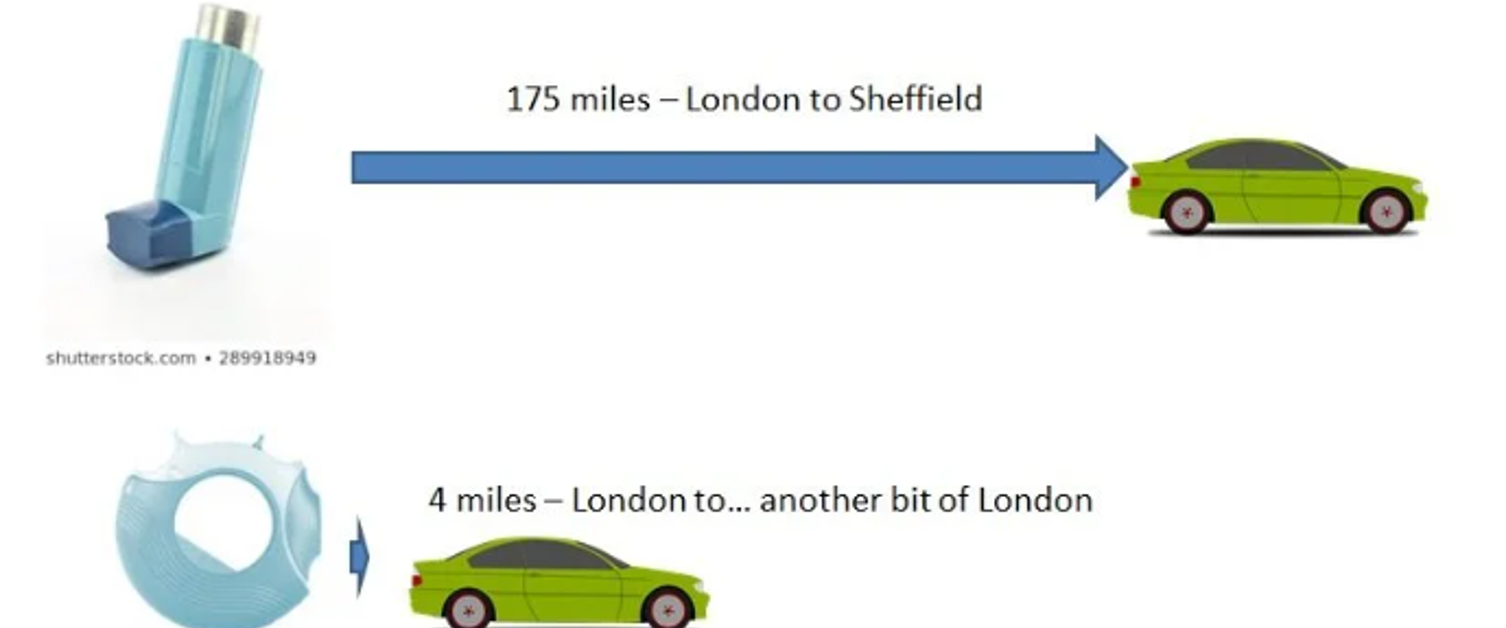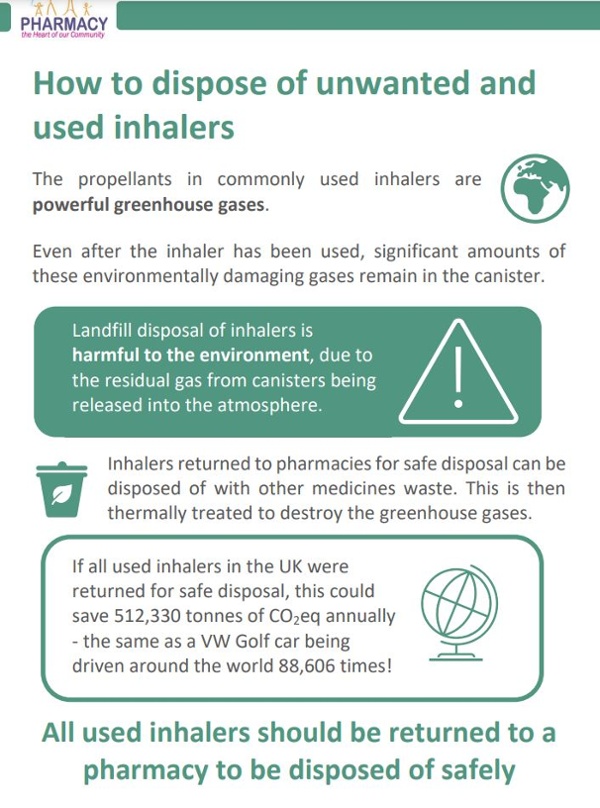Greener Practice

The practice with the help of our patients are trying to reduce our carbon emissions. Here are a few ways we are doing this.
What steps can you take?
There are a number of steps that we can take as individuals to help reduce our carbon footprints, both at home and in our work. There are a wealth of online resources available to you to research suggestions that you may be able to easily impliment, you may even be suprised to realise you are already doing your part for the environment and to reduce your carbon footprint. The following link can be used as a very handy tool for actions that can help you to set sustainable goals, and to make a real impact.
The Lazy Person's Guide to Saving the World - United Nations Sustainable Development
Green Inhaler - Making your inhaler more environmentally friendly
With regards to your health and medicines, we would like to make a number of suggestions that would benefit the environment and your health care:
- Only order your medications as needed, and do not stockpile. This reduces medicines wastage. Medicines currently account for 25% of greenhouse emissions within the NHS, with inhalers making up 3% of them.
- Use sustainable methods of transportation to attend our practice where possible, including walking and public transportation. A bus stop is available right outside our practice gates, with regular buses available throughout the day.
- Choose a local pharmacy to collect your medication to reduce your car journeys around our area. We conveniently have a pharmacy directly across the road, no more than a 2 minutes walk away.
- Sign up for pharmacy collection service - let us send your prescription directly to your nearest pharmacy. Request forms are available via our App and also at our reception desk to give your consent and nominate a pharmacy. Alternatively, speak to your pharmacy regarding automatic prescription ordering and collection.
- Dispose of your inhalers sustainably - did you know that gases released from your used inhalers which are dumped in household waste release potent greenhouse gasses into our atmosphere which will remain for approximately 270 years? To prevent this, simply return your used inhalers to your pharmacy who will destroy your inhalers sustainably in a process that destroys the propellant gases.
Reducing the climate change impact of inhalers: environmentally safe disposal
A small number of medicines account for a large portion of the emissions with inhalers making up 3% of them. Certain inhalers (pMDIs) currently use hydrofluorocarbon gases (HFCs or ‘F-gases’) as propellants. When used inhalers are disposed of in domestic waste, the residual HFCs and gases are likely to be released into the atmosphere and can contribute to climate change.
The NHS wants to increase the frequency of the greener disposal of used inhalers. Inhalers returned to pharmacies for safe disposal will be incinerated at high temperature; this process destroys the propellant gases, so they don’t escape into the atmosphere. Steel and aluminium from inhaler canisters may be recovered and recycled at some incinerators. The NHS is also taking other actions, such as offering patients alternative, lower carbon inhalers, where clinically appropriate and supporting people to use their inhalers properly.
To do your part, simply return your used inhalers to your pharmacy. Do not dispose of these in household waste.
